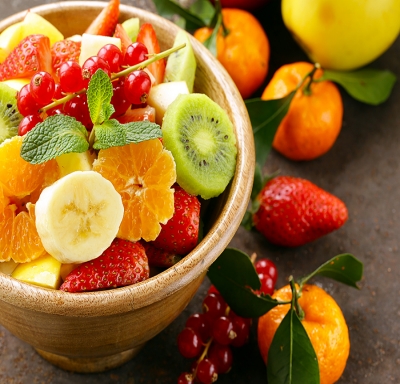We use cookies to give you the best possible online experience. See our cookie policy for more information on how we use cookies and how you can manage them. If you continue to use this website, you are consenting to our policy and for your web browser to receive cookies from our website.
8 delicious tropical fruit for good health
Load up on vitamin C, help prevent medical conditions including cancer, and get your antioxidants with these tropical fruit.
Singapore, Malaysia, Thailand and other Asian countries and territories abound with a variety of brightly-coloured and nutritious fruit. They don’t only taste great, they also have enormous health benefits and should be considered an essential part of a healthy diet if living in these tropical regions. Many nutritionists and doctors laud the abilities of these foods to prevent numerous medical conditions and to maintain the general health and well-being of those who enjoy eating them.
1. Papaya
Papayas are a favourite post-meal fruit in Asia because it aids digestion. The brightly-coloured fruit is also a rich source of fibre, antioxidant vitamins and carotenes — brightly coloured nutrient compounds that have powerful antioxidant functions. Unripe papaya is also made into pickles and in Thailand, is used in a spicy, sour, crunchy salad (‘som tham’).
2. Banana
The humble banana packs a nutritional punch, loaded with vitamins A, B, C and potassium. They also contain an amino acid called tryptophan — a compound that improves the mood. Tropical bananas, especially the small ones, are particularly sweet, and often served as fritters (‘goreng pisang’) in Singapore and Malaysia.
3. Pineapple
Fresh pineapple is not just a juicy snack full of vitamin C, but also aids digestion because it contains a protein-digesting enzyme called bromelain. In Asia, pineapple can be eaten fresh, but is also served in savoury salads (‘rojak’), as an addition to peanut sauce for satay, or dipped in a mixture of dark soy sauce, sugar and chili.
4. Jackfruit
With a distinct taste that is a cross between a pineapple and banana, the jackfruit is packed with vitamin C, A and potassium, magnesium and calcium. Unripe, the mild-tasting flesh has a meat-like texture and popularly used in vegetarian cooking. Ripe, the flesh can be eaten on its own, added to icy dessert drinks or fried into crunchy crisps.
5. Mangoes
Mangoes are high in vitamin C, vitamin A and host of cancer-fighting antioxidants. The fruit can be eaten fresh and also made into a range of desserts. Mango puddings and jellies are popular in Singapore and Hong Kong, while in Thailand, the ripe fruit is paired with sticky rice and coconut milk. In Jamaica, mango leaves are brewed into tea for coughs and asthma.
6. Avocado
High in ‘good’ fat, avocado is commonly eaten as a delicious thick milkshake in countries like Indonesia. Avocados are packed with potassium, vitamin C, E and B-vitamins as well as omega-3. Omega-3 fatty acids are a powerful nutrient that staves off heart disease, lowers inflammation and cholesterol.
7. Coconut
The coconut fruit is considered a superfood. Coconut water is an excellent source of electrolytes and perfect for hydrating in humid climates, while the white flesh contains a host of vitamins, minerals, antioxidants and fibre. Significantly, the fats in the flesh are high in medium-chai fatty acids that control inflammation and reduce the risk of heart disease.
8. Starfruit
With its attractive shape and juicy sweet-sour flesh, the starfruit or carambola has one of lowest calorie content among tropical fruits. It is high in vitamin C, phytonutrients, fibre, B-complex vitamins and has small amounts of potassium, phosphorus, and zinc and iron. The crunchy fruit can be eaten fresh — wavy skin and all — or on a juice. In traditional Chinese medicine, the starfuit is used as a remedy for coughs and sore throats.
To avoid tummy troubles, avoid cut fruit sold by street vendors. Instead, buy whole fruit from supermarkets and wash these in bottled water before consumption. For added protection for yourself and your family while living abroad, do ensure that you have an appropriate international health insurance policy in place. To find out more about Aetna's international medical insurance, click here.





